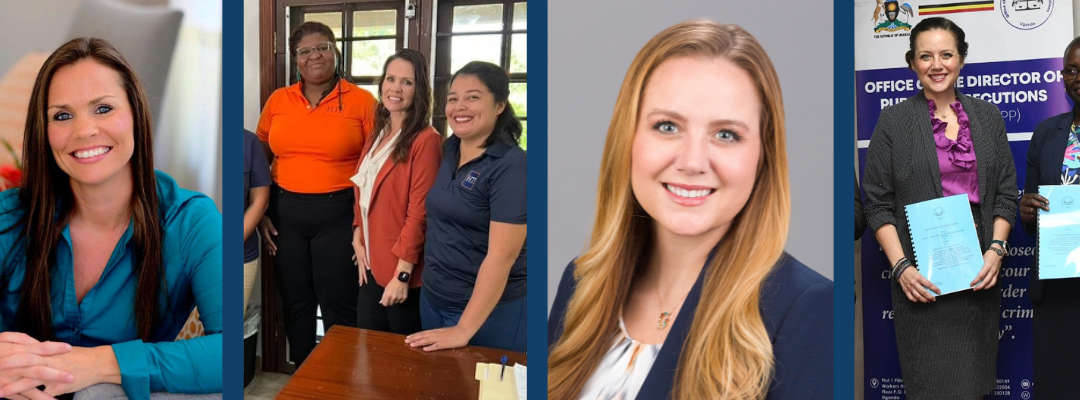From the shiny, new products lining home improvement store shelves to the twice-worn shirts on the racks of local thrift stores, every good has a supply chain with a story. Often these stories are – seen or unseen – fraught with lies, manipulation, and illegal activities including human trafficking.
The Institute’s Director of Government and Corporate Relations, Annick Febrey, shed light on the role these supply chains play in the fight against modern-day slavery during the recent Students Opposing Slavery annual summit in Washington, D.C.
“The Summit helps educate the next generation of anti-trafficking activists by providing high school students from all over the world with the information and tools to take action in their own community,” Febrey said.
Summit participants are members of Students Opposing Slavery, a youth education program dedicated to raising awareness about modern slavery among teenagers. Since 2011, more than 130 high school students from 23 different countries have gathered for the annual summit held each summer at President Lincoln’s Cottage. At the summit, students learn about ways they can join the anti-trafficking movement. In 2016, Students Opposing Slavery was presented the EdCom Award for Excellence in Programming, recognizing its “exemplary creativity and innovation in museum educational programming.”
This year, 23 students from four countries and five states participated, learning about a range of topics from the human trafficking basics to specifics on labor trafficking and trafficking in supply chains. Presentations were given by organizations who exist to fight modern-day slavery including Polaris, Humanity United, GoodWeave International, and the Human Trafficking Institute.
During Febrey’s presentation, students learned about forced labor in supply chains and the role the U.S. Government plays in preventing products made with forced labor from entering the domestic marketplace.
“The U.S. currently imports about $400 billion worth of products made with forced labor, which is 16% of all of our imports,” she explained to the students. “If the U.S. successfully closes its enormous market to slave-made goods and requires importers, companies, suppliers, and manufacturers to implement better policies and practices to prevent forced labor in supply chains, this can have a significant impact on reducing slavery worldwide.”
“Annick’s presentation was foundational to participants’ understanding of how pervasive human trafficking is within supply chains,” said Jenny Phillips, External Communications Coordinator with President Lincoln’s Cottage. “After [her] presentation, participants recognized their power as consumers to put pressure on the companies they support to work harder to eliminate forced labor from their supply chains. It was easy to see how much the training affected the students. On the last day of the Summit, the students presented their personal awareness campaigns they hope to bring back to their schools and communities. Numerous students included aspects of raising awareness regarding supply chains in their own campaigns.”
President Lincoln’s Cottage, the parent organization of Students Opposing Slavery, was established to continue the legacy of Abraham Lincoln’s fight against slavery and inspire future students to be active participants in the anti-trafficking space in their own communities. “The Human Trafficking Institute uses a multi-pronged and multi-disciplinary approach to combating trafficking, which is right in line with President Lincoln’s Cottage’s goal with the Summit,” Phillips said. “We love the idea that people with different backgrounds and skills can come together to try and solve a problem, and that’s what we try to get the Students Opposing Slavery participants to realize. This fight is going to take all of them, using their voice and unique talents, and the Institute is a great example of what that can lead to.”




